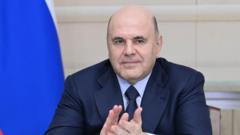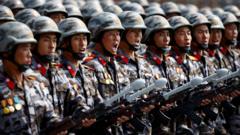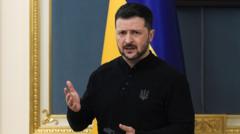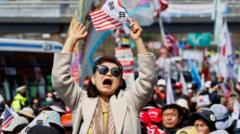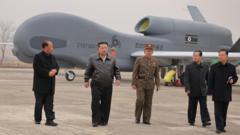North Korea has resumed its annual marathon event, allowing foreign runners to experience a unique race through the capital, Pyongyang, for the first time since 2019.
North Korea Holds First International Marathon in Six Years, Welcomes Foreign Runners
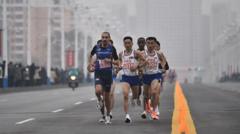
North Korea Holds First International Marathon in Six Years, Welcomes Foreign Runners
Pyongyang International Marathon returns after pandemic hiatus, attracting 200 international participants.
North Korea's Pyongyang International Marathon was successfully held for the first time in six years, with approximately 200 international runners participating in the event. This esteemed marathon, which began in 1981, is organized to coincide with the birthday of the nation’s founding leader, Kim Il Sung, celebrated annually every April.
Prior to the marathon on Sunday, the last event had taken place in 2019. The country remained isolated after sealing its borders in 2020 due to the Covid-19 pandemic. Since then, it has been slow to reopen, accepting only Russian tourists for limited visits until the recent marathon.
Participation in this year's marathon required runners to enter North Korea through organized tour groups, as was customary before the pandemic disruptions. Tour operator Koryo Tours, based in Beijing, offered all-inclusive six-day packages for runners at a cost of 2,195 euros (approximately $2,406), which included flights from Beijing to Pyongyang.
The marathon course was designed to showcase significant landmarks throughout the capital, including the Kim Il Sung Stadium, the Arch of Triumph — a tribute to Kim Il Sung’s resistance against Japanese colonial rule — and the Mirae Future Scientists' Street, a residential area intended for professionals in science and engineering. Runners were greeted with lively support along the route, with numerous spectators cheering and waving gold-colored flags at the stadium.
Pak Kum Dong, a local North Korean runner, shared his experiences, stating that the encouragement from the local crowd helped him push through tough moments during the race. While there has been no official release of race results, the event's success marks a step toward normalcy as North Korea continues to navigate its post-pandemic reopening.
Since the middle of 2023, North Korea has cautiously scaled down its Covid-19 restrictions, briefly allowing some Western tourists to visit select areas before those tours were unexpectedly halted.
Prior to the marathon on Sunday, the last event had taken place in 2019. The country remained isolated after sealing its borders in 2020 due to the Covid-19 pandemic. Since then, it has been slow to reopen, accepting only Russian tourists for limited visits until the recent marathon.
Participation in this year's marathon required runners to enter North Korea through organized tour groups, as was customary before the pandemic disruptions. Tour operator Koryo Tours, based in Beijing, offered all-inclusive six-day packages for runners at a cost of 2,195 euros (approximately $2,406), which included flights from Beijing to Pyongyang.
The marathon course was designed to showcase significant landmarks throughout the capital, including the Kim Il Sung Stadium, the Arch of Triumph — a tribute to Kim Il Sung’s resistance against Japanese colonial rule — and the Mirae Future Scientists' Street, a residential area intended for professionals in science and engineering. Runners were greeted with lively support along the route, with numerous spectators cheering and waving gold-colored flags at the stadium.
Pak Kum Dong, a local North Korean runner, shared his experiences, stating that the encouragement from the local crowd helped him push through tough moments during the race. While there has been no official release of race results, the event's success marks a step toward normalcy as North Korea continues to navigate its post-pandemic reopening.
Since the middle of 2023, North Korea has cautiously scaled down its Covid-19 restrictions, briefly allowing some Western tourists to visit select areas before those tours were unexpectedly halted.



